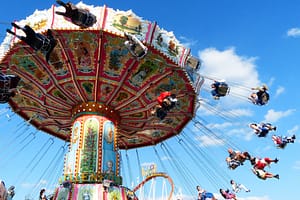LANGUAGE
German
CURRENCY
Euro
BEST TIME TO VISIT
March to May & October to November
NEAREST RAILWAY STATION
Munchen Hauptbahnhof Train Station
NEAREST AIRPORT
Munich International Airport (MUC)
EMERGENCY HELPLINE NUMBER
112
INTERNET ACCESS
Getting online is fairly easy in Germany’s south, though as is the case across Europe internet cafes are almost a thing of the past, with perhaps the odd survivor hanging on in some big cities. Public libraries offer free terminals and sometimes wi-fi access, but downsides may include time limits, reservation requirements and queues.
Some tourist information centres have free web access. Internet access is sometimes available at slightly seedy telephone call shops, which cluster near train stations in big cities.
Hotels and hostels often have high-speed access and wi-fi (W-LAN in German – the word wi-fi is not generally understood), which is usually free. At some business hotels you can pay for faster internet speed. The lower down the hotel food chain you go, the less likely it is that wi-fi will actually work or that signal will reach everywhere. Hostels, however, often have excellent wi-fi.
Many cafes and pubs offer wi-fi access, often at no charge with purchase.
There are some free hotspots in Germany’s south but these often require pre-registration. Airports offer a limited number of free minutes – for example at Nuremberg Airport you have quarter of an hour free to check e-mails. After that charges are steep.
VISA
Generally not required for stays of up to 90 days; some nationalities will need a Schengen visa.
Most EU nationals only need their national identity card or passport to enter, stay and work in Germany. Citizens of Australia, Canada, Israel, Japan, New Zealand and the US are among those countries that need only a valid passport (no visa) if entering as tourists for up to three months within a six-month period. Passports should be valid for at least another four months from the planned date of departure from Germany.
Nationals from other countries need a so-called Schengen Visa, named after the 1995 Schengen Agreement that enables passport controls between most countries in the EU to be abolished (all except the UK and Ireland have signed up). For full details, see www.auswaertiges-amt.de or check with a German consulate in your country.
HOTEL
One of the best things about Munich is that most of its top attractions are centrally located and within reasonable walking distance from many of the hotels. The city’s public transportation system is clean and efficient with choices of bus, tram, and underground railway. The old town is home to the majority of sights, including museums, shopping districts, pedestrian thoroughfares, opera houses, and historic churches. Some of the city’s finest lodgings are in this historic center, while a large number of hotels sit in the lively neighborhood adjacent to Central Station. Removed from the bustle of the tourist center, the area surrounding Nymphenburg Palace is a good choice for those who want a more peaceful retreat.
LUXURY
At Munich city center
The Mandarin Oriental
Platzl Hotel
LOUIS Hotel
Hotel Vier Jahreszeiten Kempinski Munchen
MID-RANGE
At Nymphenburg Palace
Maximilian Munich Apartments & Hotel
Hotel Torbraeu
Marc Munchen
Hotel Kriemhild
BUDGET
At Max Joseph Square
Jedermann Hotel
Schiller 5 Hotel
Acanthushotel
Motel One Muenchen-Sendlinger Tor
COST OF LIVING
Munich has prices that are typical of Germany, which puts it on a similar level to Amsterdam and definitely cheaper than London or Paris. The exception is if you are planning to come for Oktoberfest when hotels and hostels jack their prices way up. Otherwise you can usually find some good deals when searching for accommodation, especially in the neighborhood near the central train station.
This is a very outdoor city so many of the more interesting sights are free or quite cheap, which helps those on a low budget keep from going broke. Even the Oktoberfest itself is affordable if you don’t plan on riding the rides, as food and drink prices tend to be more or less in line with most restaurants, and everything else is free.
Thanks to an excellent system of the S-bahn and U-bahn trains, transportation in Munich is quite cheap, especially if you opt for the all-day pass. On the other hand, it’s difficult to find food and drinks on the cheaper end of things, unless you don’t mind the wurst (sausage) carts you see on many sidewalks. Hostels and hotels in Munich will usually double or triple their prices for Oktoberfest, which is from mid September through early October, so if you are coming then it’s best to book as early as possible. Otherwise the general high season is from April through mid September, with the low season being November through March. Munich is also an important business and trade-fair city, so it’s common that many of the mid-priced hotels are booked up well in advance of some of the larger events.

